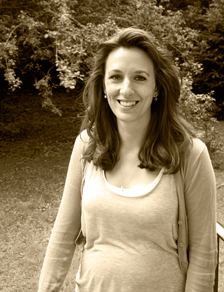
Keren Lewis visited Gulu in June 2012 as part of the Bristol West Uganda link, she writes:
I was lucky enough to have the opportunity to visit the Diocese of Northern Uganda for 3 days this June. Bishop Johnson and his wife Christine very kindly hosted me in their house. While I was there my focus was to meet staff and try and understand a bit about the Diocese and what issues they face.
Gulu Town is the Diocesan headquarters and the centre of Gulu district, one of three districts forming the historical homeland of the Acholi ethnic group, known as Acholiland. It was on the front line of the war and during the hostilities between the Uganda People's Defence Force and the Lord's Resistance Army it is estimated there were as many as many two million IDPs living in camps throughout the area. Since April 2009 all IDP camps were closed and the people were allowed to return to their villages. Bishop Johnson Gakumba has been Bishop now for 3 years, he is the first non-Acholi to become a Bishop for the Diocese of Northern Uganda and as he grew up in the area he speaks fluent Acholi (a sub dialect of Luo). One of his key focuses has been on peace building and church building which for many people has represented a real dividend of peace after the war.
Community Rehabilitation
The Diocese have been playing a part in rehabilitating their communities through a number of projects The Okwey Project has run for a number of years and aims is to help wounded survivors by facilitating healing of memory seminars, making referrals to physicians, providing scholarships for vocational or further education or giving seed money for small income generation initiatives, particularly small agricultural work. 100 people have benefited from this project. The
Ajula De Rwot Project
focuses on training volunteer village health workers and equipping villages with health kits but then also supports the health workers in developing farming techniques for small scale farming and helps them then set up Village Savings and Loan Associations which allow them to save and receive loans to build their businesses while they also support their local community in providing basic health care and advice. The same model has been used for the training of volunteers to run adult literacy classes in their villages.
The Mothers Union run Women's Development Centre which is on the Diocesan compound. The centre is for formerly abducted girls, who are often also young mothers, to have the opportunity to learn tailoring skills while their children are in a crche. Upon graduation from the one-year program, the girls are presented with a sewing machine to begin their new careers. If a girl is very committed but is struggling to pay she sometimes can arrange with the centre to pay them back once she has begun her commercial work. The centre also receives contracts to make school uniforms for local schools which helps to cover the centres costs but they struggle financially and mostly runs at a loss, however they manage to continue in spite of this.
Clergy Struggle

Clergy of the Diocese are really struggling to survive; each receive a small amount from the Diocese but with Parish churches not tithing properly and in many cases communities not having the funds to support their churches; pastors subsistence farm to try and have enough food for their families. On top of this issue the Diocese has 16 pastors coming up for retirement in the next 5 years for whom it has no way of providing for.
The medium to long term plan that the Diocese has is to generate income to supplement the shortfall. The Diocese owns the land and

shops on two sites in Gulu Town (see photos right) which they rent to shopkeepers. The plan over time is to add another floor above each of these buildings and rent these as well.
In addition to these the Diocese owns and runs a girls boarding house to those attending Christ Church High School (third picture down on right), the building is in a poor state of repair and they have had an architect draw up plans for what could be done to renovate it and create more rooms and bathrooms. If this were done they think they

could charge higher rents and also attract university students who attend Gulu University. The Diocese also own a piece of land in the middle of Gulu Town which currently has some derelict buildings on it. The Diocese wants to build a multi-purpose conference centre with accommodation which they would plan to hire out commercially. (Photo bottom right).
All of these plans require capital investment which they currently dont have however it would be fantastic if they could develop one of these assets into some much needed sustainable income.

Visit to Bobbi Parish
On the Sunday that I was there the Bishop and Rev. Willy took me to Bobbi Parish about an hour outside of Gulu Town where the Bishop was conducting a confirmation service. It was lovely to get out of town and see the countryside and was a good end to my visit. Bishop Johnson and local clergy confirmed 30 people ranging in age from about 8-80 years old!
I found all the staff I met to be really committed and that felt that they were a strong team which a huge amount of potential to continue taking the Diocese forward. I felt very privileged to be with them all and really hope I can get back next year!